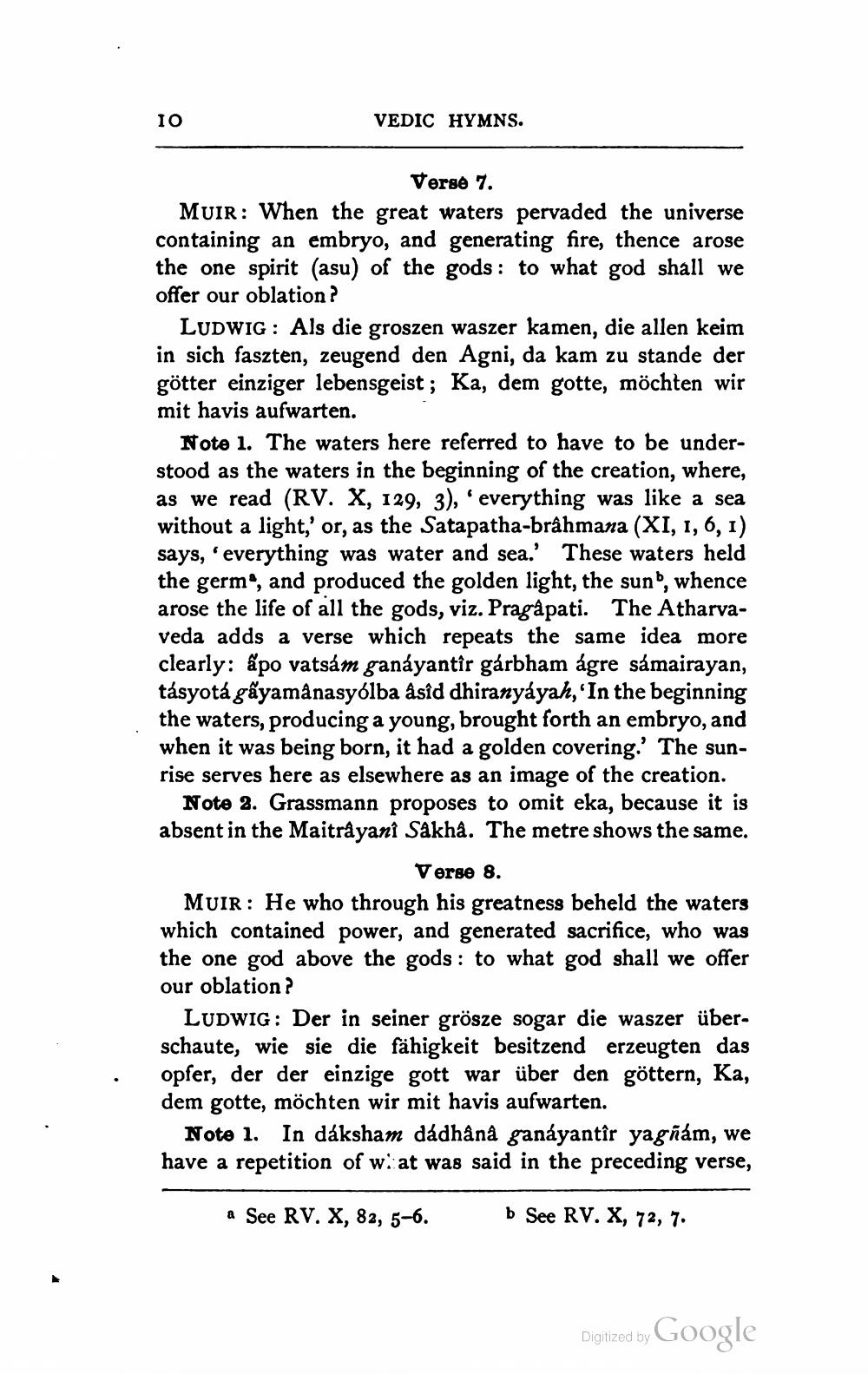________________
10
VEDIC HYMNS.
Verse 7.
MUIR: When the great waters pervaded the universe containing an embryo, and generating fire, thence arose the one spirit (asu) of the gods: to what god shall we offer our oblation?
:
LUDWIG Als die groszen waszer kamen, die allen keim in sich faszten, zeugend den Agni, da kam zu stande der götter einziger lebensgeist; Ka, dem gotte, möchten wir
mit havis aufwarten.
Note 1. The waters here referred to have to be understood as the waters in the beginning of the creation, where, as we read (RV. X, 129, 3), 'everything was like a sea without a light,' or, as the Satapatha-brâhmana (XI, 1, 6, 1) says, 'everything was water and sea.' These waters held the germ, and produced the golden light, the sun, whence arose the life of all the gods, viz. Pragâpati. The Atharvaveda adds a verse which repeats the same idea more clearly: apo vatsám ganáyantîr gárbham ágre sámairayan, tásyotá gayamânasyólba âsîd dhiranyáyah, 'In the beginning the waters, producing a young, brought forth an embryo, and when it was being born, it had a golden covering.' The sunrise serves here as elsewhere as an image of the creation.
Note 2. Grassmann proposes to omit eka, because it is absent in the Maitrâyanî Sâkhâ. The metre shows the same.
Verse 8.
MUIR: He who through his greatness beheld the waters which contained power, and generated sacrifice, who was the one god above the gods: to what god shall we offer our oblation?
LUDWIG: Der in seiner grösze sogar die waszer überschaute, wie sie die fähigkeit besitzend erzeugten das opfer, der der einzige gott war über den göttern, Ka, dem gotte, möchten wir mit havis aufwarten.
Note 1. In dáksham dádhânâ ganáyantîr yagñám, we have a repetition of what was said in the preceding verse,
a See RV. X, 82, 5-6.
b See RV. X, 72, 7.
Digitized by Google




